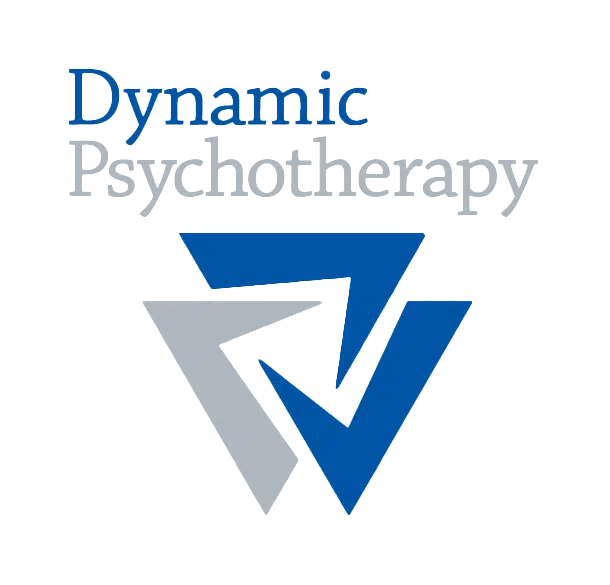Anger Management Therapy: Learn how to manage and control anger
Anger is a natural healthy emotion experienced by people of all ages, from infant and children to adults. However, the way anger is expressed can lead to problems in various aspects of life, from relationships to one’s mental health. In Australia and globally, anger management has become a vital topic of discussion in the realms of health and education.
We have a number of psychologists who provide help with anger management, including the four suggestions below.
Click on a therapist to view more
Request an Appointment
Ready to book an appointment with one of our Anger Management Therapists? Use our appointment request form by clicking the button below.
The Importance of Anger Management
Anger management is not merely about suppressing one’s explosive behaviour or aggressive tendencies. It focues on understanding anger, its triggers, and the physical signs associated with it. By doing so, individuals can learn ways to effectively control anger and avoid the stress and strain it places on mental health physical health, and relationships.
For many, the inability to manage their anger stems from childhood experiences. Children who witness unhealthy expressions of anger in their homes, school, or wider environment, may grow up experiencing a lot of anxiety when their own anger, or that in others, is mobilised. They develop without learning the necessary steps to recognise and handle their own feelings of anger. Over time, these feelings can escalate into destructive ways of responding to a rise in anger including full-blown anger issues. If left unchecked, these ways of dealing with anger have severe repercussions in adulthood.
They develop without learning the necessary steps to recognise and handle their own feelings of anger. Over time, these feelings can escalate into destructive ways of responding to a rise in anger including full-blown anger issues. If left unchecked, these ways of dealing with anger have severe repercussions in adulthood.
Some people experience difficulties with the emotion of anger due to brain damage, for example as a result of a car accident. The resulting impulsivity can make it difficult to recognise and contain a rise of anxiety, resulting in the anger coming out badly towards others.1
Therapy can help build capacity to resist the impulsivity and develop healthier expressions of anger.
Understanding Anger
What is Anger? Anger is an emotional response to perceived threats. The threats can be real or can be imagined. Anger can motivate us to address wrongs or defend ourselves, but when experienced with much anxiety, it can become destructive. Anger can either go ‘inwards’ in self attack and depression, or ‘outwards’ in uncontrolled verbal or even physical explosions.
Healthy Anger vs. Problematic Anger
- Healthy Anger: Acts as a signal to let us know something might be wrong. It can be a catalyst for positive change and is expressed in a calmly assertive, non-destructive manner.
- Problematic Anger: Chronic, intense, or explosive anger can lead to mental health issues, physical health issues, relationship problems, work-related challenges, and legal difficulties.
Common Causes and Triggers Anger can be caused by various factors, both external and internal:
- External: Family conflict, partner conflict, other relationship disagreements, news reports, traffic jams, work pressures, everyday frustrations
- Internal: Personal issues like fear, guilt, or memories of traumatic events.
Recognising the triggers for your anger and the signs of a physiological rise of anger in your body, are the first steps in learning to effectively manage anger.
Warning Signs of Uncontrolled Anger
Uncontrolled anger, if left unchecked, can have significant repercussions on one’s well-being and relationships. It’s essential to be aware of the warning signs to address the issue promptly and seek the necessary help or intervention.
Quick Temper
One of the most apparent signs of uncontrolled anger is a quick temper. Individuals might find themselves reacting impulsively to minor provocations or annoyances. This impulsivity can escalate situations unnecessarily and lead to regrettable actions or words.
Persistent Feelings of Frustration
Another warning sign is the constant feeling of frustration, even in everyday situations that wouldn’t typically cause such a reaction. This could manifest as a persistent irritability or an inability to enjoy activities that were once pleasurable.
Physical Urges during Angry Episodes
An alarming sign is the urge to act out physically when feeling angry. This could range from slamming doors, breaking objects, to more severe manifestations like the urge to harm oneself or others. Such physical reactions indicate a heightened level of anger that requires immediate attention.
Verbal Outbursts and Aggression
Consistent verbal outbursts, shouting, or using derogatory language when angry can strain personal and professional relationships. It can also indicate an inability to communicate feelings effectively, leading to aggressive verbal expressions.
Feelings of Regret Post Outbursts
Regularly feeling remorse or regret after an angry episode is a sign that the individual recognizes the negative impact of their anger but might be struggling to control it.
Isolation from Loved Ones
If someone starts to withdraw or isolate from loved ones due to their anger episodes, it’s a clear indicator that the anger is affecting their social well-being and relationships.
In Conclusion
Being aware of these warning signs of uncontrolled anger is the first step towards addressing the issue. Recognizing these signs early can help in seeking appropriate intervention, be it counselling, therapy, or anger management programs, to ensure the individual’s and their loved ones’ well-being.
Options for Managing Anger
Fortunately, there are several options available for those looking to better manage their anger. Anger management programs, both in-person and online, offer structured ways to understand and control these intense feelings. Therapy can also provide a safe space for individuals to discuss their anger triggers and develop strategies to deal with them.
In addition to formal programs and therapy, there are anger tips that individuals can implement in their daily lives. Simple acts such as taking deep breaths, counting to ten, or removing oneself from a stressful situation can make a significant difference. For children and kids, specific strategies tailored to their age and understanding level can be beneficial.
Explosive Behaviour: Common Anger Triggers
Anger, as we all know, is a powerful and primal emotion. While it’s a natural part of the human experience, understanding what lights the fuse can help in navigating and managing it. Everyone has their triggers, but some are almost universal. Recognizing and acknowledging these triggers is the first step towards mastering one’s explosive reactions.
Injustice
Witnessing or experiencing unfair treatment, be it a personal slight or a larger societal issue, can lead to feelings of anger. This is especially true when individuals feel powerless to address the injustice directly.
Unmet Expectations
When reality doesn’t align with our expectations, disappointment can quickly morph into anger. This can range from small, everyday events like a bus running late to larger personal milestones not being achieved.
Personal Challenges
Internal struggles, be it issues related to self-worth, past traumas, or general life dissatisfaction, can amplify external triggers. When one is already grappling with internal turmoil, external events can easily tip the scale.
Environmental Stressors
Overcrowding, noise, or even something as simple as extreme temperatures can act as catalysts for anger. When the environment feels hostile, it becomes easier for minor annoyances to escalate into significant anger events.
Physical Discomfort
Lack of sleep, hunger, or illness can lower our tolerance for irritation. It’s not uncommon for people to become more irritable or quick to anger when they’re tired or haven’t eaten.
In Summary
Understanding these common triggers is essential. But what’s equally crucial is acknowledging that everyone’s threshold for anger is different. Anger management therapy, especially in diverse cities like Melbourne, often focuses on this personalized understanding.
By working with professionals in anger management therapy in Melbourne, individuals can dive deep into their triggers, understand them, and equip themselves with strategies to navigate them effectively.
How to Get Anger Under Control: Short-Term Management Techniques
The Onset of Anger: A Common Scenario
Imagine you’re driving, and suddenly you’re cut off by another vehicle. Your initial response? Perhaps you’d want to honk, shout, or even tailgate the offender. That’s anger knocking on your door. But wouldn’t it be amazing if, instead of acting on impulse, you could quickly dial down that fury and continue driving with composure? This scenario underlines the importance of having short-term anger management techniques in your emotional toolkit.
Temporary bandaids
Short-term anger management techniques are like those nifty hacks that you employ to fix something temporarily. They don’t address the root of the problem but are super useful when you need a quick solution.
For instance, taking a deep breath, counting to ten, or taking a short walk can work wonders in diffusing a potentially explosive situation. These techniques provide a necessary pause, allowing you to shift your focus and recalibrate your emotions.
Benefits Beyond the Moment
Furthermore, embracing these techniques doesn’t just help you control anger in the heat of the moment. They also play a pivotal role in preventing unnecessary confrontations, reducing stress, and fostering healthier relationships.
After all, it’s often our immediate reactions that leave lasting impressions. By mastering these short-term management techniques, you’re not only safeguarding your own well-being but also cultivating a harmonious environment for those around you.2
The Comprehensive Approach: Beyond Short-Term Solutions
Understanding the Root Causes
Managing anger goes beyond short-term solutions like deep breathing. To truly control anger, understanding its root causes is crucial. Often, anger masks deeper feelings like hurt or disappointment. By recognizing these underlying emotions, one can address the core problems.
The Role of Self-Awareness
Self-awareness is key in anger management. By identifying anger triggers and understanding personal responses to stress, people can better navigate situations that incite anger.
The Importance of Therapy
Anger management therapy is a vital component in the journey towards emotional well-being.
Therapy goes beyond just talking about one’s anger issues. It delves into understanding triggers, patterns, and underlying emotions. Therapists provide tools and techniques to not only manage and control anger but also to understand its origin. This deep dive helps individuals gain insights into their reactions and offers coping mechanisms for future encounters.
Furthermore, therapy offers a safe space. It’s an environment where individuals can express their feelings without judgment, learn from their reactions, and develop strategies to handle similar situations better in the future.
The ultimate goal of anger management therapy is long-term emotional health, equipping individuals with the resilience and understanding to face life’s challenges head-on.
Anger Management Techniques and Strategies
Navigating the turbulent waters of anger isn’t always straightforward. However, mastering specific techniques can equip you with the tools to face these tempests with a level head. Let’s delve into some proven strategies for managing and ultimately diffusing anger.
Relaxation Techniques
We often overlook the power of simplicity. Something as basic as taking a moment to breathe deeply can provide a much-needed pause in a heated moment. By incorporating visualization—imagining a peaceful scene, for instance—you can further transport yourself to a calmer mindset, effectively reducing the intensity of your anger. Relaxation strategies and meditation techniques are readily available online including through YouTube. While these do not deal with anger at its root cause, they can build healthier coping strategies and also have positive health benefits.
Cognitive Restructuring
It’s all about perspective. If you often find yourself trapped in a cyclone of negative thoughts, it might be time to change your thinking patterns. By challenging these pessimistic views and replacing them with more balanced and rational thoughts, you’ll be better equipped to handle situations without the lens of anger clouding your judgment.
Problem-solving
Frustration often stems from problems that seem insurmountable. However, breaking these down and tackling them methodically can provide a clearer path forward. Remember, not every issue will have a clear-cut solution, but by approaching them systematically, you can reduce the associated frustration and, by extension, your anger.
Better Communication
Misunderstandings can be a primary catalyst for anger. By honing your listening skills and ensuring you communicate your feelings transparently, many conflicts can be nipped in the bud. Active listening and clear articulation can bridge gaps and prevent minor disagreements from escalating into full-blown arguments.
Using ‘I’ Statements
Pointing fingers rarely leads to productive conversations. Instead of laying blame, frame your feelings from your perspective. Phrases like “I feel hurt when…” put the emphasis on your emotions, encouraging a more empathetic response and reducing defensiveness in the other party.
Time-outs
Remember when you were a kid, and time-outs seemed like the worst punishment? As adults, these can be our saving grace. If you feel your temper flaring, stepping away—even if just for a few minutes—can give you the space to cool down, reflect, and return to the situation with a clearer head.
Conclusion
Harnessing these anger management strategies can not only improve your reactions in the moment but can also lead to healthier relationships and a more balanced emotional life. Remember, it’s all about understanding your triggers, responding instead of reacting, and seeking support when needed. Whether it’s through therapy, self-help resources, or supportive communities, remember that you’re never alone in this journey.
The Link Between Anger and Physical Health
Anger, as a potent emotion, has profound impacts on our well-being. Anger is a natural and frequent human response to specific triggers or situations, but chronic debilitating expressions of unmanaged anger can have detrimental effects on health.
Physical Consequences of Prolonged Anger
When anger becomes a frequent visitor, it can lead to increased stress levels. The body’s response to constant anger releases stress hormones like cortisol, which, if persistently elevated, can lead to a range of health problems. These include high blood pressure, heart diseases, weakened immune systems, increased risk of diabetes and adrenal insufficiency leading to chronic fatigue. Additionally, chronic anger can lead to sleep disturbances, exacerbating these health issues further.
Mental Health and Anger Management
The mental health implications of persistent unhealthy expressions of anger are also significant. Anger can lead to anxiety, depression, and other mood disorders. When anger triggers excessive anxiety, it can decrease the brain’s ability to process information and think clearly, leading to memory and concentration problems. Over time, this constant state of heightened emotion can drain one’s mental energy, leading to fatigue and decreased motivation.
Delving Deeper into Anger in Children and Adolescents
Anger, while a natural and universal emotion, manifests differently across age groups. Children and adolescents, in particular, find themselves at a unique crossroads when it comes to expressing and managing their anger. Their minds, still in the phase of growth and development, coupled with their relatively limited life experiences, often make it challenging for them to process and express their emotions healthily.
The Role of Education in Addressing Anger
In educational institutions, in Australia and also globally, there is rising acknowledgment of the importance of addressing anger in young minds. Schools and educators are increasingly integrating emotional intelligence and anger management strategies into their curricula.
The objective isn’t merely to maintain discipline within the classroom, but to equip these young individuals with tools and techniques that will serve them well into adulthood.
By enabling children to develop healthy relationships with their anger early, including instilling anger management skills early on, we aim to better equip children. Educators seek to foster a foundation that promotes healthier interpersonal relationships, better decision-making, and overall improved mental well-being as these children transition into their adult lives.
Challenges Faced by Adolescents
As children progress into their teenage years, they encounter a myriad of challenges – from academic pressures to the complexities of peer relationships, and the onset of hormonal changes. These factors can sometimes amplify frustration, confusion, and anger.3
An additional issue for adolescents is having more autonomy but still being hampered by a lack of impulse control. The part of the brain responsible for impulse control does not fully develop until at least later adolescence and sometimes, particularly in males, not until the mid- to late-20s. A lack of impulse control development often contributes to difficulties with managing anger.
Recognising and addressing these emotional responses is paramount, as unchecked anger during these formative years can set a precedent for how these individuals handle conflict, stress, and emotional turmoil in their later years.
Triggers and Causes: The External and Internal Provocations
Understanding what stokes the fires of anger is a pivotal step in managing it. External triggers could range from a disagreement at work, the stress of Melbourne’s peak hour traffic, to more personal confrontations in relationships. These external events trigger an internal response. If anger evokes anxiety, based on the individual’s history of anger in relationships, the internal response can be problematic for the individual and for others including leading to further stress, and the experience of inadequacy and insecurity.
Recognising the patterns of feelings, thoughts and behaviours triggered, forms the foundation of effective anger management therapy. It is the first step towards harnessing this emotion of anger and using it constructively.4
Have any questions, or ready to book an Appointment?
Our friendly Reception team is here to help you.
Nothing in life is to be feared, it is only to be understood. Now is the time to understand more, so we may fear less.
-Marie Curie
- Walker, A. J.; Nott, M. T.; Doyle, M.; Onus, M.; McCarthy, K. & Baguley, I. J. (2010). “Effectiveness of a group anger management programme after severe traumatic brain injury”. Brain Injury. 24 (3): 517–24. doi:10.3109/02699051003601721. ↩︎
- APA, apa.org 2013. Controlling anger before it controls you, Strategies To Keep Anger At Bay, part 4. ^
↩︎ - Down, Richard & Willner, Paul & Watts, Louise & Griffiths, Jenny. (2010). Anger management groups for adolescents: A mixed-methods study of efficacy and treatment preferences. Clinical child psychology and psychiatry. 16. 33-52. 10.1177/1359104509341448. ↩︎
- Lochman, John E.; Powell, Nicole R.; Clanton, Nancy; McElroy, Heather K. (2006). “Anger and Aggression” (PDF). In George G. Bear; Kathleen M. Minke (eds.). Children’s Needs III. National Association of School Psychologists. ISBN 9780932955791. Archived from the original (PDF) on November 14, 2007. ↩︎





